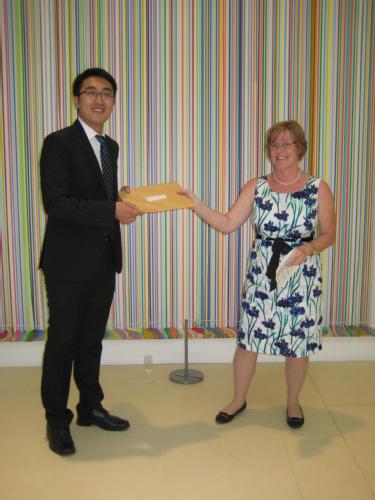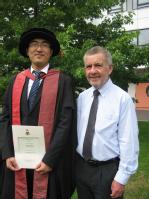Computer Science News
Professor Dan Král wins Philip Leverhulme Prize
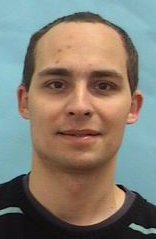
Professor Dan Král has been awarded a Philip Leverhulme Prize for his work on combinatorial limits.
Philip Leverhulme Prize is awarded to outstanding scholars who have made a substantial and recognised contribution to their particular field of study, recognised at an international level, and where the expectation is that their greatest achievement is yet to come.
The research focus of the prize, the theory of combinatorial limits, is a recently emerged and rapidly evolving area of mathematics, which led to opening new links between analysis, combinatorics, computer science, group theory and probability theory.The analytic view of large discrete structures resulted in a substantial progress on many notoriously difficult extremal combinatorics questions. It also gave new understanding of aspects of important concepts such as regularity decompositions. Still, many fundamental problems remain widely open. A particularly challenging problem is finding a robust notion of convergence that would unify the existing notions for dense and sparse discrete structures. In relation to extremal combinatorics, problems of a great significance include a full description of low dimensional projections of the body of feasible limit densities or the existence of finitely forcible (determined) configurations in the extremal points of this body as conjectured by Lovász and Szegedy.
Professor Graham Cormode receives the Royal Society Wolfson Research Merit Award
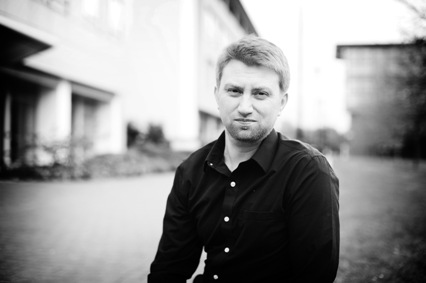
Professor Graham Cormode from the Department of Computer Science, has been awarded a Royal Society Wolfson Research Merit Award.
The Wolfson Research Merit Award is one of the most prestigious UK awards, supported by the Royal Society, the UK's national academy of science. The scheme provides up to 5 years’ funding after which the award holder continues with a permanent post at the host university. Jointly funded by the Wolfson Foundation and the Department for Business, Innovation and Skills (BIS), the scheme aims to provide universities with additional support to enable them to attract science talent from overseas and retain respected UK scientists of outstanding achievement and potential. Professor Graham Cormode's research will focus on "Small summaries for big data".
The Wolfson Foundation is a grant-making charity established in 1955. Funding is given to support excellence and the focus of the award is a salary enhancement.
The Royal Society is a self-governing Fellowship of many of the world’s most distinguished scientists drawn from all areas of science, engineering, and medicine. The Society’s fundamental purpose, reflected in its founding Charters of the 1660s, is to recognise, promote, and support excellence in science and to encourage the development and use of science for the benefit of humanity.
(See also The Royal Society announcement).
More information about Professor Graham Cormode's research is available at his web page at http://www2.warwick.ac.uk/dcs/people/graham_cormode.
Mike Joy, Meurig Beynon and Steve Russ will lead an Erasmus+ project, Construit!
Congratulations to Mike Joy, Meurig Beynon and Steve Russ, who will lead an Erasmus+ project, to start in October 2014, for 3 years! The project also involves EDUMOTIVA from Greece, UEF from Finland, Helix5 from the Netherlands, Comenius University from Slovakia, and University of Edinburgh UK.
Warwick mathematician awarded prestigious mathematics award
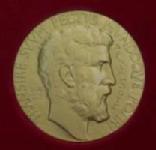
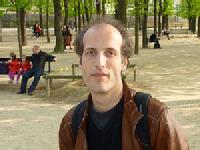 We offer our warmest congratulations to Professor Martin Hairer, Regius Professor of Mathematics in Warwick’s Mathematics Institute, who has has been awarded the Fields Medal, the world’s most prestigious mathematics award, for his "Outstanding contributions to the theory of stochastic partial differential equations, and in particular for the creation of a theory of regularity structures for such equations."
We offer our warmest congratulations to Professor Martin Hairer, Regius Professor of Mathematics in Warwick’s Mathematics Institute, who has has been awarded the Fields Medal, the world’s most prestigious mathematics award, for his "Outstanding contributions to the theory of stochastic partial differential equations, and in particular for the creation of a theory of regularity structures for such equations."
The Fields Medal is awarded every four years on the occasion of the International Congress of Mathematicians to recognize outstanding mathematical achievement for existing work and for the promise of future achievement. The Medal is internationally regarded as the world’s most prestigious award in the field of mathematics.
Lei Shi receives top award at UMAP'14
Lei Shi, a doctoral student in the Department of Computer Science at Warwick, has received a top award for his work at UMAP, the premier international conference for researchers and practitioners working on systems that adapt to individual users.
UMAP 2014 was held in Aalborg, Denmark on the 7-11 July 2014. The conference spans a wide scope of topics related to user modeling, adaptation and personalization, and was sponsored by Microsoft Reasearch and the NSF.
Lei will begin a Warwick Institute of Advanced Study (IAS) Early Career Fellowship in October. More information on his work can be found at http://www.shilei.io
Xin Lu wins Science Faculty Prize
We congratulate Xin Lu who has been awarded the Science Faculty Prize for the Best PhD Thesis in Computer Science. Xin’s thesis, entitled “Efficient algorithms for scalable video coding” and supervised by Graham Martin, was examined by Professor Mohammed Ghanbari, a leading international authority and IEEE medal winner for his pioneering work on scalable video coding. Professor Ghanbari acknowledged that Xin’s research output represented a significant contribution to the field. The results have also been published in a number of international conference and journal papers, including the IEEE Transactions on Circuits and Systems for Video Technology.
Xin Lu’s PhD degree was conferred by the University Chancellor at the Degree Congregation last Friday, and the Faculty Prize was presented by Professor Pam Thomas, Chair of the Faculty of Science, at a special event held in the Zeeman building on 23rd July. Xin Lu has now returned to China to continue his work as a lecturer at the Harbin Institute of Technology, one of the top ten universities in the country.
And now for something green ...
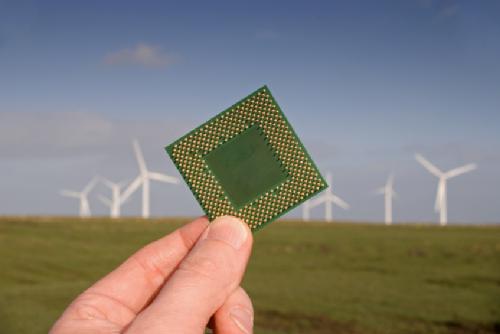
Research highlights the future of energy-aware high-performance computing
Leipzig, June 18, 2014. As reported in Inside HPC.
With energy costs a growing concern for High Performance Computing, Allinea Software will demonstrate its vision of a greener future with a preview of new tool extensions for application energy usage optimization at this year's International Supercomputing Conference (ISC'14) in Leipzig.
With larger numbers of data centers consuming over 1MW of power or having electricity bills topping $1M, energy is focussing the minds of the system sponsors and managers, says David Lecomber, CEO of Allinea Software.
Allinea Software worked with application performance experts at the University of Warwick to investigate novel energy and power measuring techniques for scientific application workloads.
to investigate novel energy and power measuring techniques for scientific application workloads.
Energy usage data is increasingly available at the system level, and our research also explored proxies for energy such as hardware counters to see where they could give deeper insight, said Professor Stephen Jarvis of University of Warwick’s HPC Performance Analysis Group.
The research supported the view that in many cases applications can reduce energy costs without adversely impacting actual run time.
Improving the green credentials of hardware and data centers is vital, and progress is good, but applications must also play their part. Energy optimization is a natural fit for our performance tools, adds Lecomber.
With the variety of workloads that HPC centers have, a ‘one size fits all’ strategy is a costly error – and so Allinea Performance Reports will provide information for application users and system managers to enable them to tune system and application parameters such as CPU frequency for optimal energy use for each application.
Our developer-centric tool, Allinea MAP, will allow scientific code developers to focus energy optimization down into the source code – making changes to the application to drive faster performance and lower energy consumption at the same time.
This research has been supported by the Technology Strategy Board's Emerging Technologies Energy Efficient Computing Programme.

